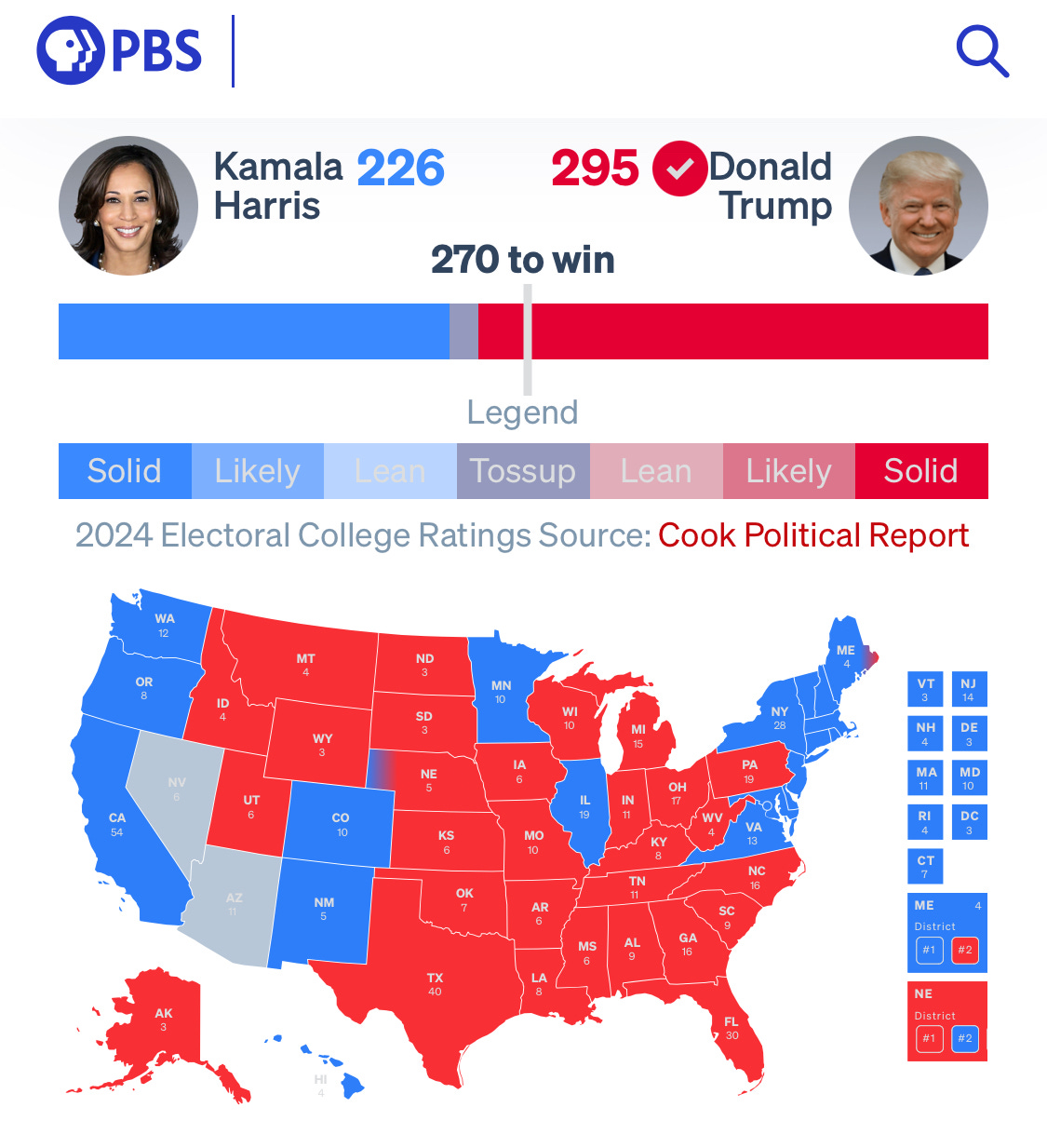The Districts Have Revolted Against The Capitol
What the Pelosi Family Reveals About Political Elites
In the recent 2024 election, Americans across the nation sent a powerful message to Washington, D.C., a message that echoes the story of The Hunger Games, where the wealth and privilege of the Capitol come at the expense of the districts. Today, many Americans feel that Washington has become a similar center of concentrated power and influence. One of the most visible examples of this privilege is the Pelosi family, whose deep political roots and personal wealth have made Nancy Pelosi a symbol of Washington’s elite.
Election Results: A Widespread Rejection of “Capitol” Policies
The 2024 election results reflect widespread dissatisfaction. Donald Trump’s decisive win in key swing states and the Senate shift indicate that this wasn’t just a revolt from small-town America—it was a nationwide response to policies seen as favoring Capitol insiders. Voters are seeking leaders who understand and represent the needs of ordinary Americans, not just the interests of a powerful few.
The Pelosi Legacy: A Family Deeply Connected to the Capitol
Nancy Pelosi’s political story began long before her tenure as Speaker of the House. She was born into a powerful political family. Her father, Thomas D’Alesandro Jr., was a prominent Democratic politician who served as both a U.S. Congressman and the Mayor of Baltimore. As a mayor, D’Alesandro was known for his influence in city politics, and his connections ran deep within the Democratic establishment. His political legacy helped establish the D’Alesandro-Pelosi name in American politics.
Pelosi’s brother, Thomas D’Alesandro III, also became the Mayor of Baltimore, cementing the family’s influence. From her early years, Pelosi was steeped in a culture of political power and connections, and her family’s reputation gave her a strong foundation as she entered public life.
While she is often linked to California Governor Gavin Newsom, they are not blood relatives. Instead, they are connected through marriage: Nancy Pelosi’s brother-in-law, Ron Pelosi, was once married to Gavin Newsom’s aunt, Barbara Newsom. Although Ron and Barbara later divorced, the Pelosi and Newsom families have maintained close alliances in California politics, frequently supporting one another’s careers. These connections have allowed the family to wield influence in both state and federal policy circles, illustrating the power that a small number of families hold over American politics.
Pelosi and Stock Trades: Questionable Timing and Insider Connections
One of the most controversial aspects of Pelosi’s career has been her and her husband Paul Pelosi’s stock trades. Although not proven to be insider trading, the timing of these trades has often raised eyebrows, especially as they relate to legislation Pelosi worked on or had influence over. Critics argue that her access to non-public information, combined with her role in crafting legislation, creates a potential conflict of interest.
For example, in 2021, Paul Pelosi purchased significant shares of NVIDIA, a major semiconductor company, just as the House was considering legislation to boost U.S. semiconductor production. This move came amid bipartisan support for the CHIPS Act, a bill aimed at increasing domestic semiconductor manufacturing to counter global supply chain vulnerabilities. When the CHIPS Act passed, NVIDIA and other semiconductor stocks saw significant gains, leading to questions about whether the Pelosis’ investments benefited from inside knowledge of upcoming legislation.
Another notable instance involved Paul Pelosi’s trades in tech stocks like Apple and Microsoft—companies directly affected by regulations and technology policies discussed in Congress. Despite the perception of a conflict of interest, members of Congress and their families are not bound by the same insider trading laws as corporate executives, creating what some see as a “legal loophole” that allows Capitol insiders to make financially advantageous trades based on legislative knowledge.
In response to public pressure, there have been calls to ban members of Congress from trading individual stocks. However, these proposals have yet to gain traction in a Capitol where such practices are not uncommon.
A Broader Pattern: Political Dynasties and Self-Enrichment
The Pelosi family is not alone in this pattern. Political dynasties in the U.S. have long held power across generations, and some have enriched themselves through advantageous policies. The Capitol’s wealth, often built through connections and privileged access, contrasts sharply with the struggles of ordinary Americans. Pelosi’s story is emblematic of a larger issue—a Capitol culture where power is handed down within influential families and financial opportunities arise for those with the right connections.
Immigration, Economic Disparities, and the National Debt
While Capitol insiders benefit from their influence, Americans across the country bear the costs of policies they feel are detached from reality. From the crisis at the southern border, with over 300,000 missing migrant children and a devastating fentanyl epidemic, to skyrocketing inflation that has burdened middle-class families, Capitol policies are seen as endangering ordinary lives.
At the same time, the national debt has reached over $33 trillion, a crisis that both major parties have contributed to. Many Americans are concerned that this debt, which now surpasses the country’s GDP, jeopardizes the country’s economic future, with interest payments alone consuming a growing share of the federal budget.
The Military-Industrial Complex: Profits Over Peace
The Capitol’s close relationship with defense contractors is another example of how policy benefits insiders. Contracts for military equipment and services benefit a small number of well-connected companies, while the American public and military families bear the costs of unending foreign conflicts. The revolving door between Congress, the Pentagon, and defense contractors has created a profit-driven culture that feels more focused on wealth than on genuine security.
A Call for Real Representation
The 2024 election shows that Americans want more than party loyalty; they want transparency, accountability, and leaders who are focused on serving the people. The Pelosis’ story—of inherited influence, financial gain, and political power—is a stark reminder of how the Capitol can appear to serve itself at the expense of the nation.
In this moment, Americans have shown that they want a government that reflects their values and addresses their struggles. The Capitol may hold wealth and influence, but the true strength of America lies in its people. The voice of the districts is a powerful force, and it’s demanding that those in power remember who they serve.
(To hear more from the voices of the “Districts,” visit madmadnews.com.)





